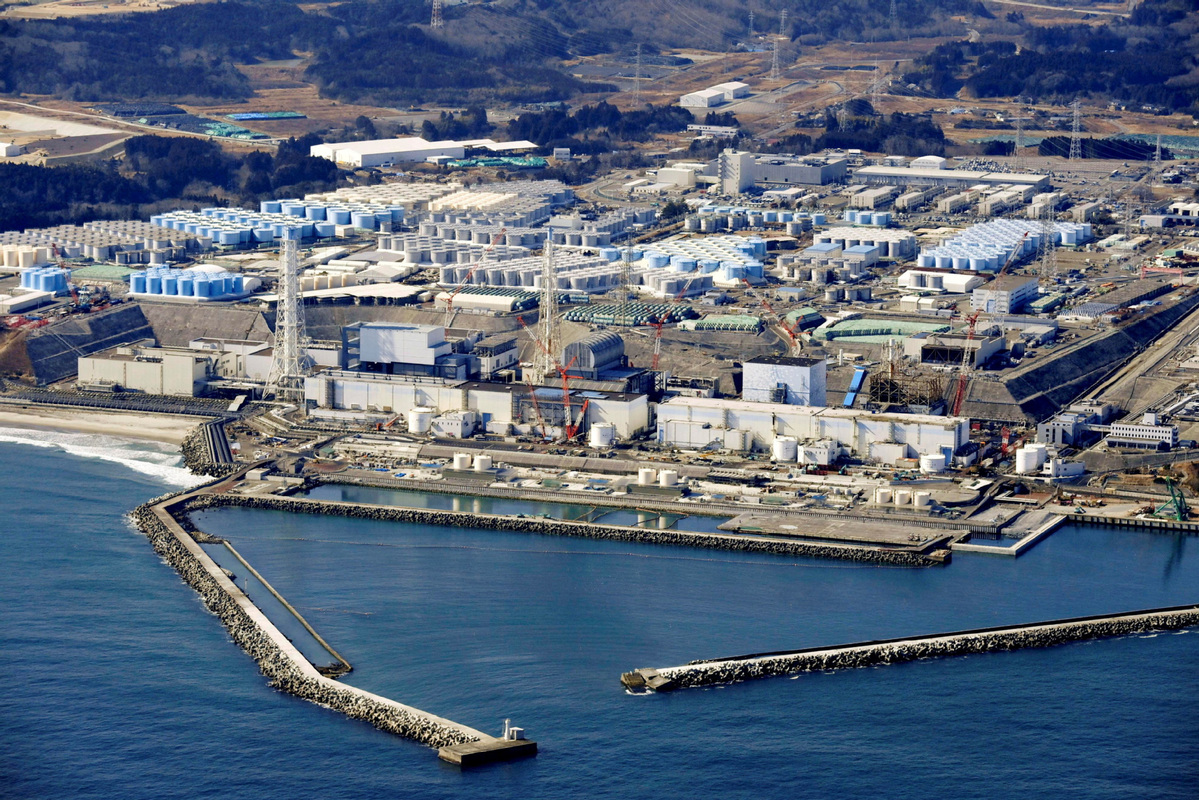Japan pulling Pacific island countries into line with aid
By Li Yang | China Daily | Updated: 2023-03-15 07:23

Japanese Foreign Minister Yoshimasa Hayashi is scheduled to visit the Solomon Islands, Kiribati and the Cook Islands later this month. The visits come as the proposed date for the release of the nuclear-contaminated water from the Fukushima nuclear power plant draws near.
The temporary storage tanks the country built near the now deserted nuclear power plant as a makeshift solution can hold about 1.37 million cubic tons of water in total. Now they contain about 1.32 million cubic tons of the nuclear-contaminated water.
To the disappointment of most countries, the Japanese government has decided that the best solution is to "dilute" the water and discharge it into the sea. But no matter how "attenuated" the nuclear-contaminated water is, experts say this will make no difference as all the nuclear waste contained in the water now stored in the tanks will still be discharged into the Pacific, eventually spreading to all the oceans around the world.
By discharging the water into the ocean, Japan will turn its own accident into a global hazard as nuclear radioactive materials will not only damage the marine ecology but also enter the human food chain through seafood.
The Pacific island countries will bear the brunt of it at first, making them staunch opponents against Japan on this issue.
Which is why, since February, Japan has markedly intensified its diplomatic moves toward Pacific island nations. Japanese Prime Minister Fumio Kishida and Hayashi held talks with senior officials of the Federated States of Micronesia, the Cook Islands and the Marshall Islands last month.
And Hayashi is expected to take his visits to the three countries as an opportunity to offer them generous "development aid" in a bid to ease the international pressure on Tokyo or at least muffle as many opposing voices as possible before Japan opens the tap.
It will undoubtedly be a good bargain for Japan as the input for such public relations activities is incomparable to the input it would otherwise have to make to dispose of the nuclear-contaminated water in a safer way.
Those that are ready to accept Japan's offer should bear in mind that what their countries will lose for generations will dwarf their immediate gains.
As one of the richest economies, with advanced science and technology, and one that is renowned for its environmental and ecological preservation, there are better, although more costly ways, for Japan to deal with waste water rather than dumping it directly into the sea. The studied silence of the United States over Japan's decision in exchange for Japan's support for its hegemony, only hinders global endeavors to hold Japan accountable for its choice and persuade it to change its mind.
























